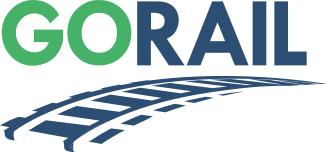
Port Hueneme, CA — Situated on the scenic California coastline just 60 miles north of Los Angeles, the Port of Hueneme has carved out a niche for handling automobiles, fresh produce, cargo, bulk liquids and fish.
The port’s strategic location on the Pacific Rim facilitates trade with Asia and Australia and its robust, uncongested rail and road connections have made it a magnet for automobile and agricultural shipments. In particular, the port’s own Class III short line railroad, the Ventura County Railway, connects to Union Pacific’s North American rail network – meaning quick turnaround and efficient intermodal service to markets across the country.
Hueneme also hosts the largest cold storage capacity on the west coast, providing California’s Central Coast agriculture industry with weekly ocean services to global markets. And it boasts the top rank among West Coast ports for banana imports, receiving about 3.3 billion bananas annually. It’s no surprise that shippers are attracted to the only commercial deep-water port between Los Angeles and San Francisco.
While Hueneme is a native Chumash word meaning “resting place” or “half-way place,” the staff at Port of Hueneme are hardly resting. The $9 billion worth of goods that travel through the port annually supports 13,633 trade-related regional jobs and, in 2017, generated $1.5 billion in economic activity.
Leading the effort is Port Director & CEO Kristin Decas. Decas was recently selected as Top Port Director of the Year by the International Association of Top Professionals, in addition to being named Outstanding Woman of the Year in International Trade by the Los Angeles chapter of Women in International Trade. We asked Decas a few questions about her role at the Port of Hueneme, how the port uses rail and the effect of free trade policy on port business.
Why has increased rail capacity been important for the POH?
Decas: The Port of Hueneme’s rail connectivity is key to our expansion capabilities and environmental initiatives. Through Ventura County Railway and its connection to Union Pacific, the increased rail capacity has the potential to put more cargo on rail – such as cars, heavy machinery and even fruit – and moving it out further distances, to the Pacific North West, Midwest and Southeast. The rail capacity increases the ability of our customers to extend their reach into the United States’ supply chain and expand their market of sales and sourcing. The efficiency of rail connections and the ability to load near-dock is a key strategic competitive advantage for the Port of Hueneme as we endeavor to grow cargo throughput and move more cargo without creating congestion on traffic patterns or putting pressure on the environment. Our relationships with top customers have been able to flourish in recent years because of their ongoing and increased use of the rail asset.
We appreciate the partners we have in the rail operators – Genesee and Wyoming and Union Pacific railroads. Through our mutual open and communicative style of business development, we have been able to secure more business, increase productivity of our rail spurs and plan for long term development of new rail capacity on and off dock to serve the Port of Hueneme.
How do international trade policy decisions made in Washington, D.C. affect business at the POH?
Decas: International trade policy decisions made in Washington, D.C., play a crucial role in the long-term planning and decision making of our customers, especially on how they choose to route their cargo and best compete in their markets. Many of our shippers and exporters are global companies that have worldwide operations and they can source their products and supplies from multiple countries and locations. Tariffs, limited trade policies and unfavorable trade actions can sometimes create challenges for international trade if they make it harder to compete in the global marketplace. Effective trade policies create the opportunity for increased business and economic growth.
We work well with our stakeholders in the state of California and in Washington, D.C., to continue to elevate the level of visibility and understanding for ports like ours that provide good-paying jobs, increase communities’ economic viability and provide ladders of opportunity for our youth. Rail is an important part of this discussion.
How did you prepare for your role at the POH and what’s your advice for young women interested in working in the goods movement industry?
Decas: I was fortunate to have great mentors throughout my career who have instilled in me the value of remaining strong and adaptive in different situations. When I was in Port of New Bedford, MA, one of the largest fishing ports in the nation, I worked with the mayor. He once advised me to stay strong and “Make a fist!” to remind myself of the strength that I have within me – that I am able to take on any challenge that comes my way.
My simple advice is to work hard, listen, learn and go for it. I was the only woman that applied for my position out of 60 applications. If you grasp opportunities and “Make a fist,” you will go far!


